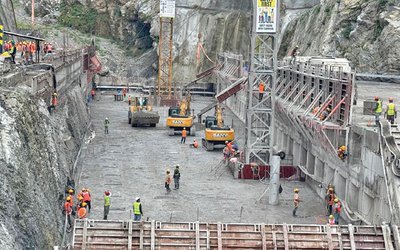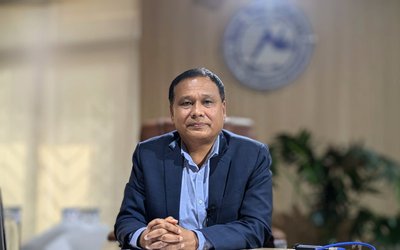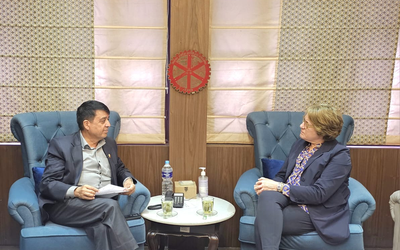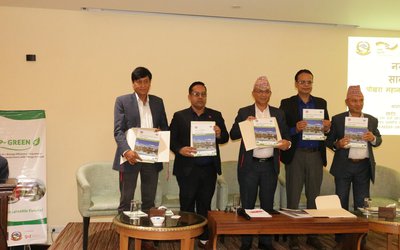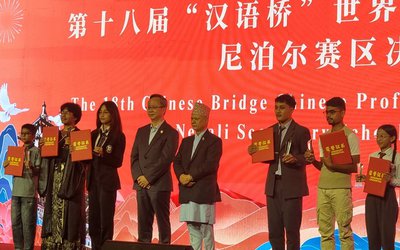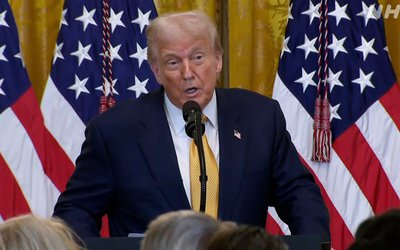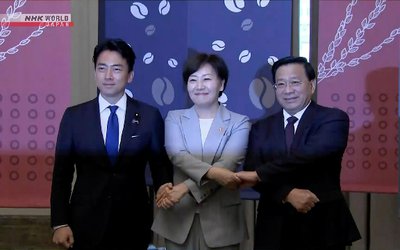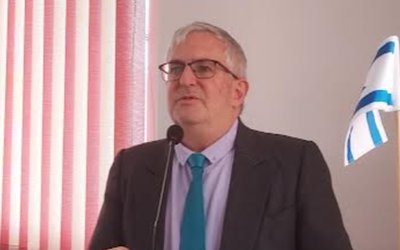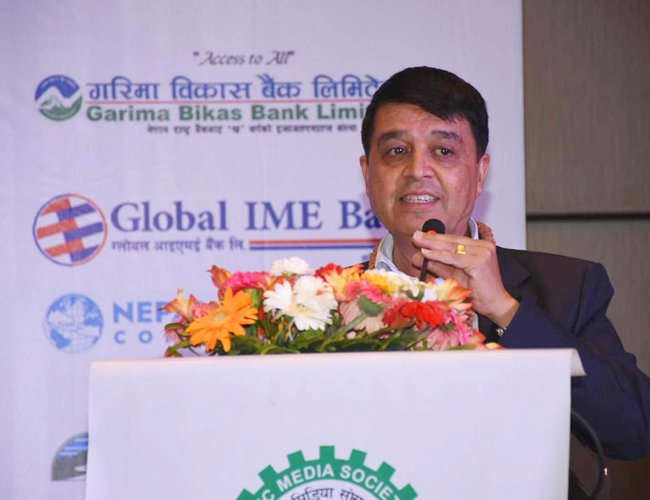
Working closely with the government, Dhakal expressed his satisfaction with the budget's provisions for the private sector. As the Chairman of Global IME Bank and IME Group, he noted that the budget incorporated many suggestions from the private sector.
Speaking at the 'Budget a Holistic Discourse' event organized by the Economic Media Society Nepal (EMSON), Dhakal highlighted the budget's role in encouraging the private sector as a key driver of the economy.
He stressed the need for the government to effectively implement the suggestions included in the budget to ensure the private sector's growth and overall economic improvement. Dhakal also mentioned the importance of past demands from the private sector being implemented to avoid discouragement within the sector.
He drew a comparison between valuable mineral resources like petroleum products in the Middle East, emphasizing that keeping resources unprocessed and underground would not have led those countries to their current economic prosperity. He stressed that Nepal should not hesitate to export its mineral resources for economic growth. He also mentioned that the budget has addressed other private sector demands, such as reducing rent in Special Economic Zones (SEZs) and building international convention halls.
During his speech at the event, he acknowledged that while many private sector suggestions were incorporated, some were not. He raised concerns about issues like Power Purchase Agreements (PPAs) in hydropower and the "take or pay" model in the budget, which could complicate matters for the private sector, hinder foreign investment attraction, and affect bank financing.
He expressed optimism about the removal of the foreign currency threshold for hotels in border areas, aimed at boosting the tourism sector. This move has generated excitement within the tourism industry.
While recognizing the positive aspects of the budget, he cautioned that past implementation failures have caused problems. Using the example of the Dhaubadi iron mine, he highlighted how the lack of implementation has disappointed investors and citizens despite being mentioned in every budget.
He noted that the "take or pay" provision could potentially restrict private sector involvement in electricity trading, posing challenges for the hydropower sector. He emphasized that successful implementation of the budget and good governance are essential for achieving the budget goals and the targeted 6% economic growth.."
Drawing a parallel with valuable mineral resources like petroleum products in the Middle East, he emphasized that keeping resources unprocessed and underground would not have led those countries to their current economic prosperity. Similarly, he stressed that Nepal should not hesitate to export its mineral resources for economic growth. He also mentioned that the budget has addressed other private sector demands, such as reducing rent in Special Economic Zones (SEZs) and building international convention halls.
During his speech at the event, he recognized that while many private sector suggestions were incorporated, some were not. He raised concerns about issues like Power Purchase Agreements (PPAs) in hydropower and the "take or pay" model in the budget, which could complicate matters for the private sector, hinder foreign investment attraction, and affect bank financing.
He expressed optimism about the removal of the foreign currency threshold for hotels in border areas, aimed at boosting the tourism sector. This move has generated excitement within the tourism industry.
While acknowledging the positive aspects of the budget, he cautioned that past implementation failures have caused problems. Using the example of the Dhaubadi iron mine, he highlighted how the lack of implementation has disappointed investors and citizens despite being mentioned in every budget.
He noted that the "take or pay" provision could potentially restrict private sector involvement in electricity trading, posing challenges for the hydropower sector.
He emphasized that successful implementation of the budget and good governance are essential for achieving the budget goals and the targeted 6% economic growth.
- EU’S ERASMUS MUNDUS: Scholarship For Quality Education
- Aug 05, 2025
- ADB: Partnership For Growth
- Aug 04, 2025
- HCC-N: Economic Ambassador
- Aug 03, 2025
- MONETARY POLICY: Disappointing Outcome
- Jul 17, 2025
- MELAMCHI WATER SUPPLY: No Interruption During Monsoon
- Jun 25, 2025
